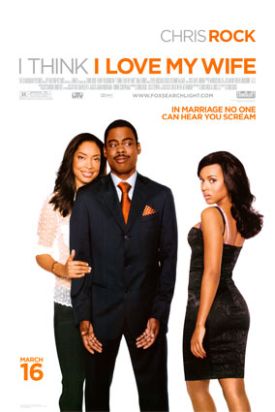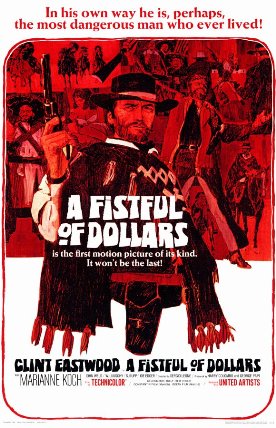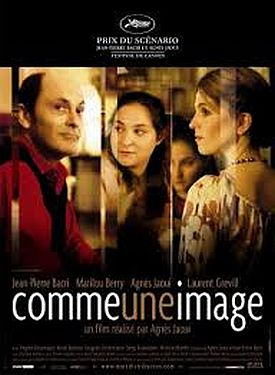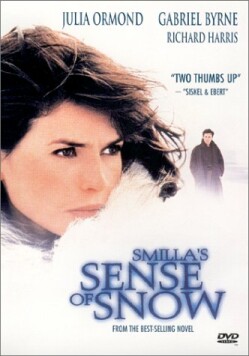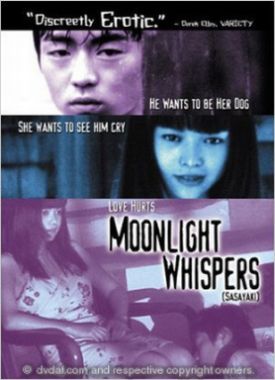I Think I Love My Wife
Odd couples do not get much odder than Eric Rohmer and Chris Rock, but the latter’s new film, “I Think I Love My Wife,” is based on one of the classic Six Moral Tales by the French genius and master of cinematic subtlety, “L’amour l’apr s midi” (released in America as “Chloé in the Afternoon”) of 1972. Whatever else you may say about Chris Rock, he’s not exactly subtle. Moreover, he’s breaking the general rule, that remakes are a bad idea, as well as the special, supplemental rule that Hollywood remakes of French classics are a very bad idea. Yet Mr Rock’s translation of Mr Rohmer’s picture into an American idiom is so different from the original that it takes on an independent existence. We never feel as if he is trying and failing to make a French film.
The Rohmer mise-en-sc ne — which consists of a young married man’s shilly-shallying about having an affair with an exotic female while giving vent to voiceover musings on love, marriage and fidelity — is in some ways surprisingly well suited to Mr Rock, since the voiceovers provide him with an opportunity to work in bits of his stand-up routine, which is often very funny. And then there’s the exotic female. Kerry Washington as the beautiful but vulnerable Nikki Tru, who tempts Mr Rock’s Richard Cooper, is a worthy successor to Mr Rohmer’s Chloé, played by that French-Algerian icon of the 1960s, Zouzou. Both women are, as they have to be, quite stunningly sexy.
All that is the good news. The bad news is that there is another and unexpected sort of artificiality built-in to “I Think I Love My Wife.” For Richard, a high-flying Wall Street banker, can’t get his story straight. In his first voiceover he tells us that, in spite of his good job, his beautiful wife Brenda (Gina Torres) and two perfect children, “I’m bored out of my f****** mind.” Fair enough. Mr Rohmer’s hero, Frédéric (Bernard Verley), wouldn’t have put it quite that way, but he probably felt something similar. But then it also transpires that Richard and Brenda are no longer having sexual relations for reasons the movie doesn’t care to probe too deeply. She just doesn’t want to.
However disagreeable such a state of affairs may be in other ways, it’s not boring. And whatever else may not survive of Mr Rohmer’s original in its American adaptation, one thing that does is the need for its hero to be an Everyman. In other words, his doubts and temptations must appear familiar to every married man. That doesn’t happen when the married man in question is the victim of some vague marital pathology that leaves him sexually frustrated and not just wistfully wondering, like Frédéric, what he might have missed. I wonder why Chris Rock made such a mistake? He seems to have felt that his hero would not be likeable or sympathetic enough if he were brought to the point of committing adultery by nothing more than boredom, curiosity and a fantastically seductive temptress.
Could this have anything to do with the film’s racial sub-text? Early on, there’s a joke about Richard’s knowing all the other black employees of his Wall Street firm — who turn out to be two in number, a cleaning woman and a janitor. One of the best jokes comes when Richard finds himself in an elevator with a number of the firm’s white employees and a black bicycle messenger who is chanting along with his iPod to an obscene rap lyric that begins, “F*** the cracker!” Richard tries to hide at the back of the elevator. Later, the scene is repeated but with a white bicycle messenger chanting the same lyric — and Richard looking as bemused by it as everybody else in the elevator.
Race is not just a joke. When Nikki first turns up, he tells her that both his children are by the same mother and that he doesn’t have any “side kids,” then ironically apologizes for being so “white.” Oddly, however, Nikki seems to think he’s too black, and that she will further her cause, when she makes up her mind to seduce him, by getting him to listen to music by the white band, the Foo Fighters, rather than the black artists he usually favors. Then there’s that coarse Viagra joke, and the libidinous chararacter of George (Steve Buscemi), his colleague at the bank who is routinely unfaithful to his wife but sees no problem about it because his emotions are not engaged.
All this suggests to me that part of Mr Rock’s purpose in adding sexual dysfunction to Mr Rohmer’s mix is the debunking of stereotypes about black sexuality. It seems a pity to me that he should have felt it necessary to do that. By making Richard into such an unnaturally restrained and even uxorious husband, he also pushes him to the borders of unbelievability, introducing a note of incoherence into what might otherwise have been a funny but at the same time serious meditation on love and marriage. Even as it is, you can see in this movie the germ of one that, although it is unimaginable as coming from its ultimate progenitor, the great Eric Rohmer, would not disgrace him either.
Discover more from James Bowman
Subscribe to get the latest posts to your email.

